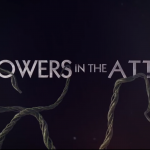By Gina Dalfonzo
One of my very earliest memories is hearing the haunting, minor-key theme song from M*A*S*H playing on our TV. When I heard it, I’d head for the family room and plop down with my parents to watch the show. In my childhood, of course, there was a lot that went right over my head—which, given the nature of some of the humor, was a good thing. Nonetheless, I grew up on Hawkeye and Hot Lips and Klinger and Radar (who’s still my favorite), their camouflage-clad figures as familiar to me as my own room and toys.
When I got a little older, I started to figure out that there was something of a gap between the way my family saw M*A*S*H and the way M*A*S*H saw itself. I don’t remember the first time I heard the term “anti-war,” or heard the show described as an anti-war show, but I do remember that it threw me for a loop.
Anti-war? I didn’t get it. My dad was a career Army officer who’d served two tours in Vietnam, retiring as a lieutenant colonel in 1988 after 22 years in the service. The military was an ever-present force in our lives, the source of our livelihood, the omnipotent entity that dictated where Dad worked and where we lived and how long we got to live there.
To this military brat, “anti-war” made about as much sense as “pro-oxygen.” War wasn’t something that you could be pro or anti—or if you could be, it wasn’t like it mattered. It was just something that happened sometimes—something horrible but inevitable—that had to be dealt with, by people like my dad.
When my family watched M*A*S*H together, it was in the same way that a cubicle worker’s family might watch The Office. Those people, stuck in that grim place, just trying to do their jobs, fighting boredom and terror and despair with everything from jokes to tantrums to parading naked through the mess tent—they were people Dad might have known. They made us laugh and grieve, and gave us years of inside jokes and quotes, because they were so real. To this day, you might hear me say “Horse hockey!” when provoked, or catch Dad and me discussing the feasibility of mailing a Jeep piece by piece.
Those people made the Army experience come alive, in all its horror and craziness and camaraderie. But how could they make it so real, make us care so much, if they were against it all?
No, I didn’t get it.
All these years later, I understand the issues and the various perspectives a little better than I did. I understand that M*A*S*H’s creative team was trying to make a statement about how truly awful war can be, about how senseless and pointless it can all feel to the ordinary people caught up in it. (Nowadays, the thing I don’t understand is how Korean War doctors and nurses got away with 1970s haircuts.)
Yet I still tend to cast a skeptical eye on any actor or writer or director who claims his or her film is “anti-war.” Don’t get me wrong, I don’t think they’re being deliberately dishonest. I think they think they’re anti-war. But I’m not sure they—or anyone—knows what that actually means. Because, as simplistically as my mind worked in my childhood, I think I somehow managed to hit on something true: the issues surrounding war are far too complex to be summed in terms like “pro” and “anti.”
Take any film that’s been called anti-war—say, The Bridge on the River Kwai. What exactly is it “anti”? The cause? No, the film makes it pretty clear that those involved believed in what the British and Americans were fighting for in World War II. The troops? Hardly. The most radical filmmaker today, much less David Lean in 1957, would scarcely dare to make a movie that condemned those who put their lives on the line in battle. The military leaders? I don’t think so—Alec Guinness’s Col. Nicholson is a tragic fallen hero, not a villain. Is it anti-violence? Not even that—the blowing up of the bridge is portrayed as a necessary and even a good thing, notwithstanding Jack Hawkins’s famous final cry of “Madness!”
I wouldn’t go so far as to say, with The Atlantic’s Calum Marsh, that “every war movie is a pro-war movie.” I’m just saying that, when you really try to define it, you soon find that “anti-war” is a term that’s very hard to pin down. Though there’s a lot that’s problematic about his article, Marsh does have a point when he writes, “In fact, it isn’t clear what a thoroughly, effectively anti-war film would look like. Even those that want to be fall short.”
Why? Because a story about war is a story about people. And people in any setting—violent or peaceful—fall into all sorts of categories and have all sorts of goals, dreams, motivations, and desires, many of them good and worthy ones.
Ironically, it was “anti-war” M*A*S*H that helped teach me that. Even in its final season, which played like one long sermon by the Rev. Alan Alda on the subject of “War Is Evil,” it was never quite as straightforward and simple as all that. Just by telling its story of brave people in a terrible place with integrity and heart, it transcended propaganda, and became more realistic and memorable than any merely “anti-war” show could hope to be.
Gina Dalfonzo is editor of BreakPoint.org and Dickensblog.
photo credit: Ochre Jelly via photopin cc











